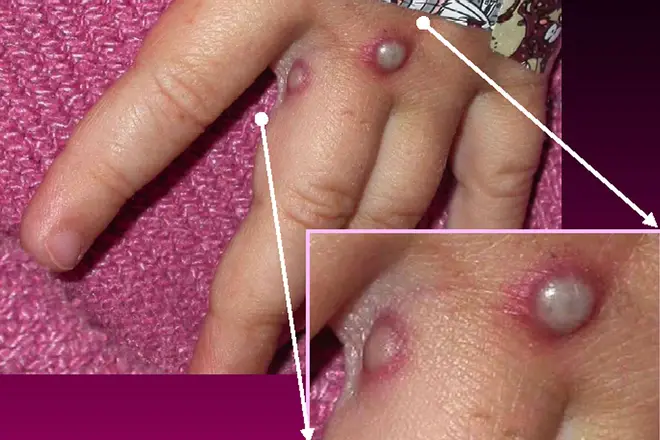
Nick Abbot 10pm - 1am
6 June 2022, 15:21

The total number of monkeypox infections in the UK has increased to 302 after 77 more cases were detected, health officials have revealed.
73 new cases were detected in England, two in Scotland and two in Wales, the UK Health Security Agency (UKHSA) said.
Despite the rise in cases, the UKHSA says that the risk to the general public is low, because the virus does not spread easily, as it is transmitted through close physical contact.
The government has not released updates on the number of daily monkeypox cases over the bank holiday, but confirmed 11 cases were reported on Thursday.
According to the UKHSA, over 50 percent of people catching the infection are males who are gay, bisexual or other men having sex with other men.
Research revealed that of 190 cases reported between 6 May and 31 May, 111 cases were men who were sexually active with other men.
780 cases have been found worldwide in 27 countries where monkeypox does not usually occur, according to the World Health Organisation, mostly in Europe and North America.

Monkeypox is not a 'gay disease',
Monkeypox is a rare disease mainly found in western and central Africa, and although cases are rising in the UK, the risk of catching it is low.
It’s usually caught by infected rodents, if you’re bitten, or touch an infected animal’s blood, bodily fluids, blisters or scabs.
It can also be caught by eating meat from an infected animal.
According to the National Health Service, the first symptoms include headaches, muscle aches, shivering, exhaustion and a high temperature.
These symptoms can take between five and 21 days to appear.
A rash will then typically develop between one and five days after infection, and can be confused with chickenpox.
The rash will begin as raised spots on the skin, and eventually turn to fluid-filled blisters, which will scab and eventually fall off.
The NHS says the illness is usually mild, and will clear up within a few weeks without serious treatment.
However, it stresses that if you display symptoms of monkeypox, it is important to isolate to prevent the infection from spreading.
The disease can live on surfaces such as bedsheets or towels.
A vaccine is available for the illness, and it advises seeking medical treatment if you have a weakened immune system.
READ MORE: High risk contacts of UK monkeypox cases urged to self-isolate for 3 weeks